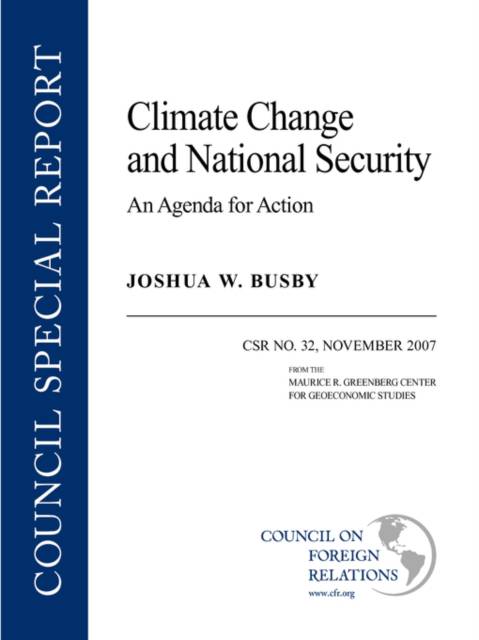
- Retrait gratuit dans votre magasin Club
- 7.000.000 titres dans notre catalogue
- Payer en toute sécurité
- Toujours un magasin près de chez vous
- Retrait gratuit dans votre magasin Club
- 7.000.0000 titres dans notre catalogue
- Payer en toute sécurité
- Toujours un magasin près de chez vous
Description
Connections between climate change and national security are receiving unprecedented attention from policymakers and analysts. Vulnerable countries need to be prepared to adapt to and minimize risks arising from climate change. Developing nations --a number of which are in strategically important parts of the world --are the least able to adapt and are the most likely to experience political instability in the wake of extreme weather, drought, floods, and other climate-related problems.Joshua W. Busby argues that it is in the United States' interest to help vulnerable countries adapt to the potentially destabilizing effects of climate change. He recommends expanding current adaptation efforts for coastal defenses, water conservation and catchment, alterations in food production, migration-relocation programs, and building and planning regulations. He identifies a number of high-profile security initiatives targeting strategically important countries and critical infrastructure vulnerable to climate change, for which he suggests risk-reduction measures including diversification, relocation, and building and planning regulations. Finally, he encourages expansion of military-to-military environmental security initiatives and identification of military bases and embassies vulnerable to climate change.This report is sponsored by the Council's Maurice R. Greenberg Center for Geoeconomic Studies.
Spécifications
Parties prenantes
- Auteur(s) :
- Editeur:
Contenu
- Nombre de pages :
- 32
- Langue:
- Anglais
- Collection :
- Tome:
- n° 32
Caractéristiques
- EAN:
- 9780876094136
- Date de parution :
- 01-11-07
- Format:
- Livre broché
- Format numérique:
- Trade paperback (VS)
- Dimensions :
- 199 mm x 233 mm
- Poids :
- 136 g

Les avis
Nous publions uniquement les avis qui respectent les conditions requises. Consultez nos conditions pour les avis.






